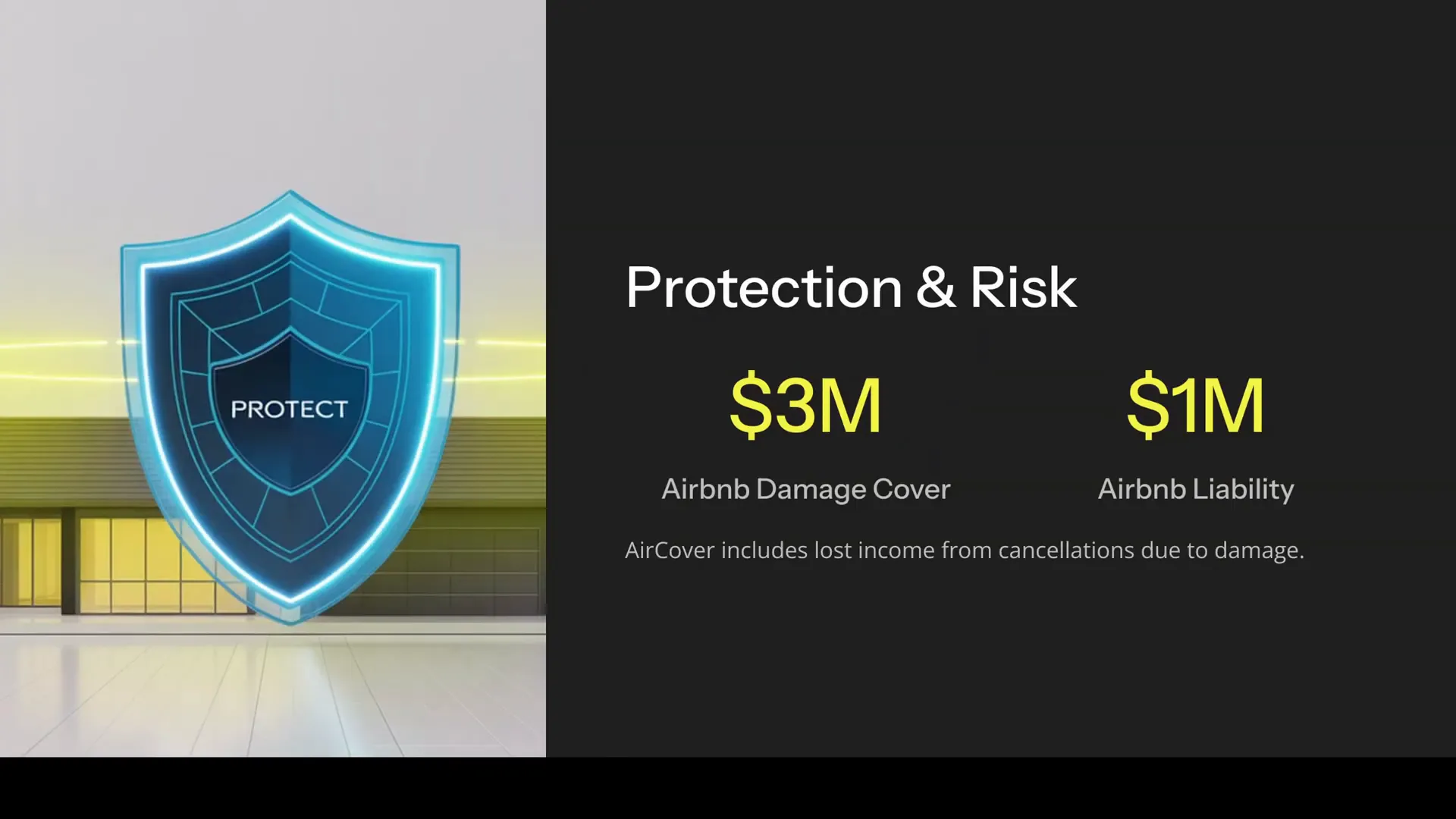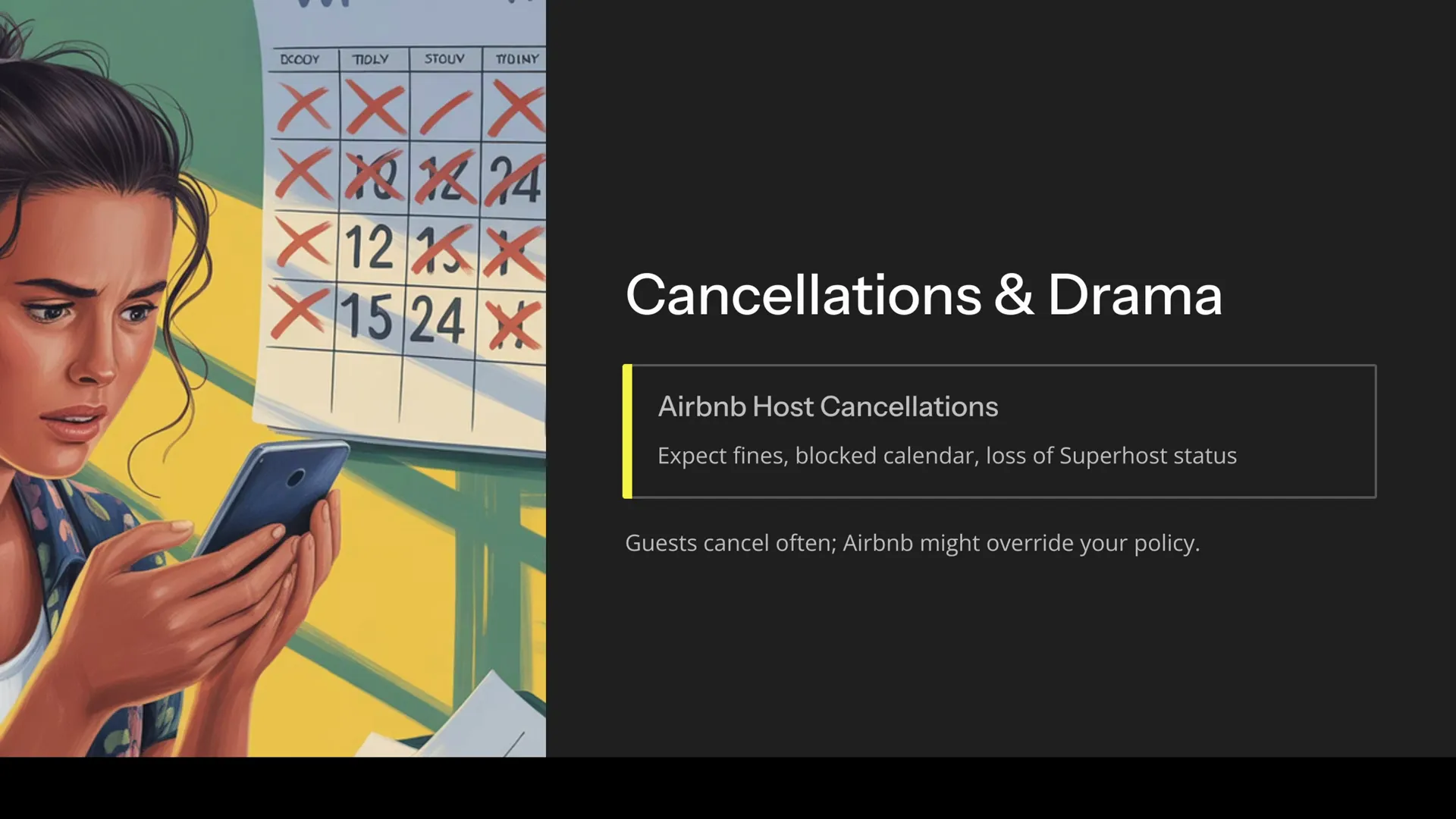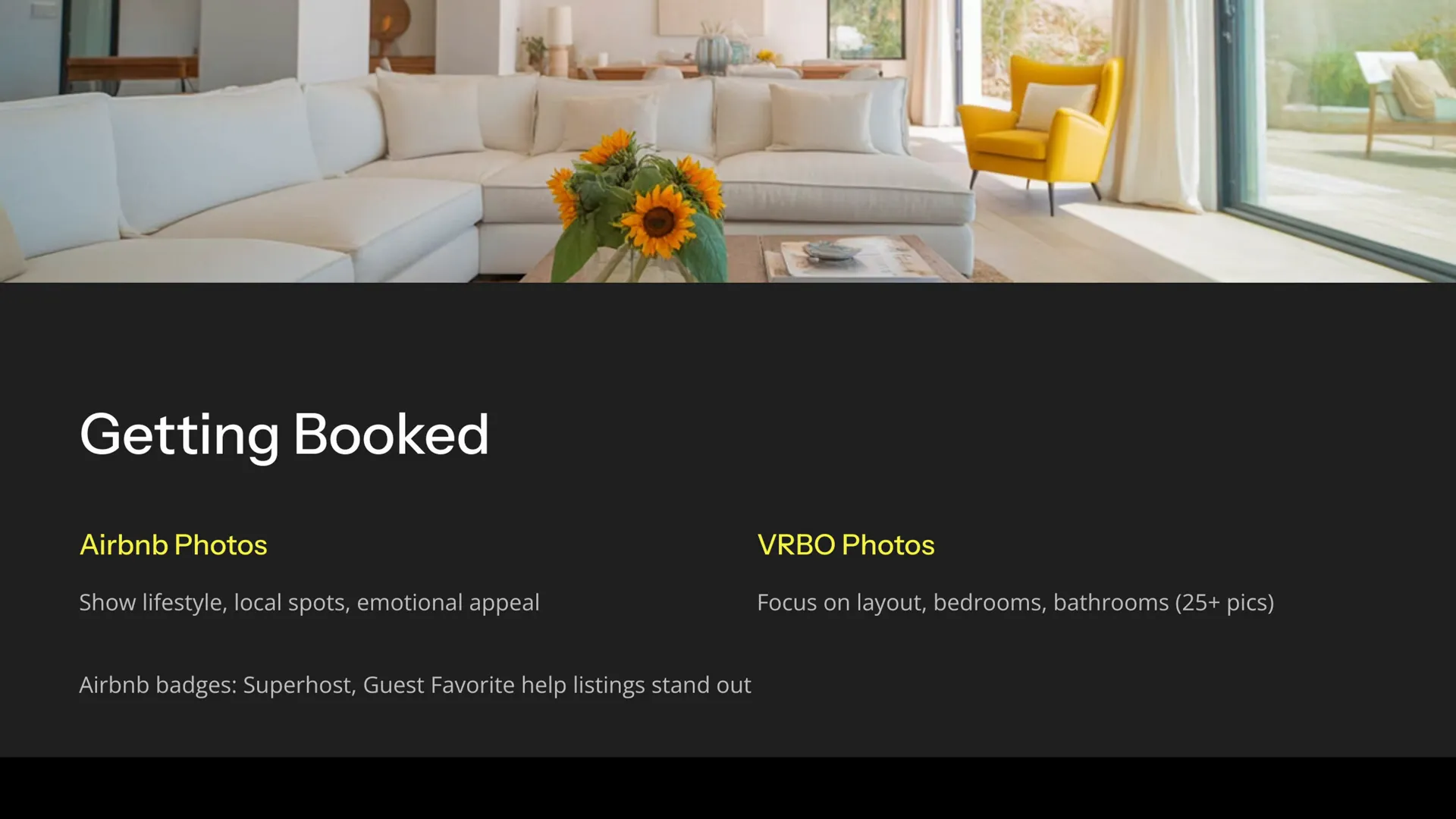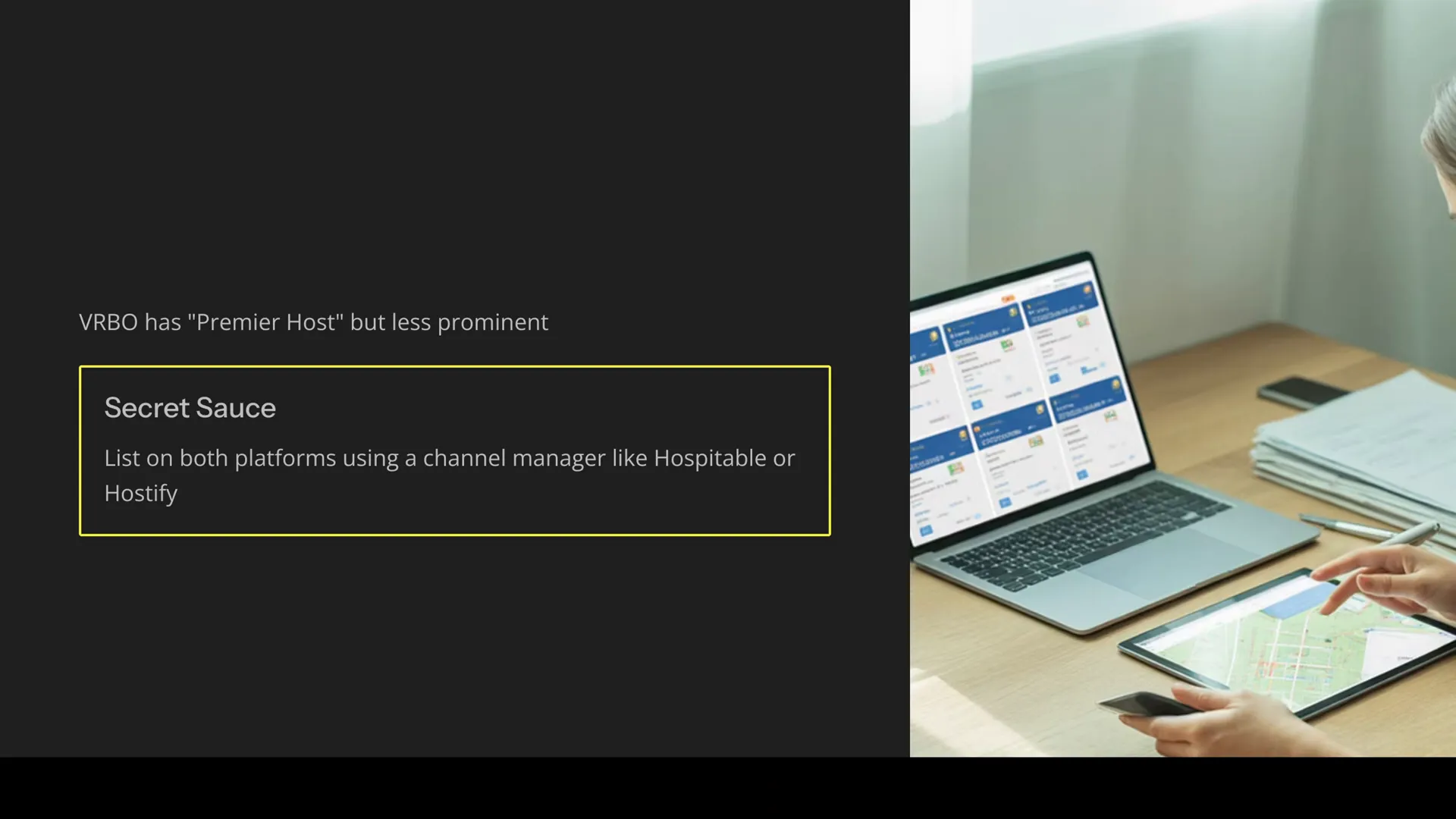When it comes to listing your property for short-term rentals, the choice between Airbnb and VRBO can feel overwhelming. Both platforms promise exposure and bookings, but they cater to different types of guests, charge different fees, and offer varying levels of protection and control. I’ve been in your shoes—used both platforms, learned the hard way, and now I want to share the no-nonsense tips that really matter when deciding which platform suits your property best.
This guide breaks down the real-world differences between Airbnb and VRBO, covering everything from guest types and fees to protection, cancellations, and booking strategies. By the end, you’ll be equipped to choose the platform that matches your property, your hosting style, and your business goals—no fluff, just what works.
Step 1: Understand the Guest Types and Property Fit
Think of Airbnb and VRBO as two different ecosystems tailored to distinct kinds of travellers and properties. Understanding who is browsing each platform and what they’re looking for is critical to picking the right one.
Airbnb: The Dating App of Short-Term Rentals
Airbnb is fast-paced and bustling, much like a dating app where there’s someone for everyone. It attracts a wide variety of guests:
- Solo travellers looking for a quick city stay
- Couples seeking weekend getaways
- Business travellers needing convenient, short stays
- Backpackers and budget-conscious guests
If your property is quirky, urban, or perfectly situated for quick city trips, Airbnb is your friend. It’s ideal for places where guests come and go frequently, seeking convenience and local experiences.
VRBO: The Family Reunion of Vacation Rentals
VRBO is more about whole homes, built for groups and families who want longer stays with fewer surprises. It’s tailored to classic vacation spots like beach houses, mountain cabins, or countryside retreats that can accommodate larger groups comfortably.
Guests on VRBO tend to:
- Book longer stays
- Plan trips carefully
- Treat the property like their own home
If your place sleeps eight or more and is designed for family vacations or group getaways, VRBO is often the better fit.
Step 2: Break Down the Fee Structures
Fees can make or break your profitability, so it’s crucial to understand how Airbnb and VRBO charge hosts and guests. The fee models are quite different and can impact your bottom line and guest booking behaviour.
Airbnb Fees: Split vs. Host-Only
Airbnb offers two main fee structures:
- Split Fee: You pay 3% of the booking subtotal, and your guest sees a 14% service charge at checkout. This can cause sticker shock for guests, often killing bookings because the total price feels too high.
- Host-Only Fee: You pay around 15%, but your guest sees a clean, upfront price. This model is more common with property managers who want to control pricing visibility.
The split fee might feel cheaper at first glance, but that guest service charge can deter bookings. Conversely, the host-only fee is more predictable but reduces your payout per booking.
VRBO Fees: Pay-Per-Booking vs. Subscription
VRBO also has two fee options:
- Pay-Per-Booking: Approximately 8% total per reservation. This is straightforward and works well if you have moderate booking volume.
- Annual Subscription: $699 upfront, phased out gradually. This was a solid deal if you pulled in over $9,000 a year, but it may no longer be available for new hosts signing up.
Overall, VRBO takes a bigger cut upfront unless you’re a high-volume host, while Airbnb appears cheaper until guests see the final price and sometimes ghost.
Step 3: Assess Protection and Risk Management
Protecting your property from damage and liability is a priority. Both platforms offer different levels of protection, but it’s important to know their limitations.
Airbnb’s AirCover: Comprehensive but Not Foolproof
Airbnb provides AirCover, which includes:
- $3 million coverage for property damage
- $1 million liability coverage
- Lost income coverage if a booking is cancelled due to damage caused by a guest
This coverage is free and generally effective but not perfect. Airbnb still recommends you carry your own short-term rental insurance to cover gaps.
VRBO’s Protection: Liability Only, Damage Is on You
VRBO offers $1 million liability coverage but does not cover property damage. If a guest breaks your TV or causes other damage, you’re responsible unless you’ve collected a deposit or purchased separate insurance.
In short, Airbnb has your back on damage claims, while VRBO leaves you to manage that risk yourself.

Step 4: Navigate Cancellations and Damage Claims
Handling cancellations and damages can be tricky, so it’s vital to understand how each platform approaches these situations.
Airbnb: Strict but Sometimes Guest-Friendly
Airbnb enforces strict rules if you cancel on a guest:
- Expect fines
- Your calendar may be blocked
- You could lose Superhost status
However, guests cancel frequently, and Airbnb sometimes overrides your cancellation policy to grant refunds, which can be frustrating.
For damage claims, Airbnb uses a resolution center that relies heavily on negotiation rather than enforcement, so success depends on your patience and communication skills.
VRBO: Consistent but Demands Accountability
With VRBO, your cancellation policy is your policy. They back you up, but if you abuse cancellations, your listing’s search ranking suffers or you risk suspension.
Damage claims require charging the guest’s card directly. If you mismanage this, VRBO may remove your listing. This puts more responsibility on you to handle disputes firmly and fairly.

Step 5: Optimize Listing Strategy and Presentation
How you present your property and interact with guests varies depending on the platform. The right approach can boost bookings and minimise headaches.
Airbnb: Sell the Lifestyle and Experience
Airbnb listings thrive on emotion and lifestyle appeal. Focus on:
- Beautiful, evocative photos
- Highlighting local hotspots and unique features
- Describing the vibe and experience guests can expect
Airbnb also rewards hosts with badges like Superhost and Guest Favorite, which help your listing stand out and build trust.
VRBO: Showcase Layout and Practical Details
VRBO guests want to know exactly what they’re getting, especially families and groups. Focus on:
- Detailed photos of every bedroom and bathroom
- Clear descriptions of how the space accommodates groups
- Including 25+ pictures to fully display the property
VRBO also has a Premier Host badge, though it’s less prominent than Airbnb’s badges.

Step 6: Use Both Platforms — But Manage Carefully
If you really want to maximise bookings and exposure, listing on both Airbnb and VRBO can be a winning strategy. But beware: managing two platforms without the right tools can lead to double bookings and scheduling chaos.
To avoid this, use a channel manager like Hospitable, which synchronises calendars and automates messaging across platforms. This way, you get the best of both worlds:
- Airbnb’s volume and variety of guests
- VRBO’s quality bookings and longer stays
- Fewer calendar conflicts and smoother operations

Step 7: Consider User Experience and Support
The platforms also differ in how hosts experience booking management and customer support.
Airbnb: Slick App, Instant Book, But Less Control
Airbnb’s app is fast, polished, and excellent for filling last-minute gaps with instant booking. However, this comes at the cost of less control over who stays. You might get party crews or guests who ignore your rules.
VRBO: Slower, More Thoughtful Booking Process
VRBO is slower with more back-and-forth communication before bookings are confirmed. This filtering process tends to discourage problem guests and attract families who plan, ask questions, and respect your property.
Support: Mixed Reviews
Airbnb’s support can be hit or miss—sometimes responsive, sometimes silent. VRBO is usually easier to reach and doesn’t automatically side with guests, which can be refreshing for hosts.
Step 8: Think Like a Business — Match Platform to Property and Goals
At the end of the day, your choice between Airbnb and VRBO should be strategic. Consider:
- Location: City apartment? Airbnb. Beach house or cabin? VRBO.
- Guest Type: Quick turnovers and solo travellers? Airbnb. Families and groups? VRBO.
- Booking Volume vs. Quality: Airbnb brings volume, VRBO brings quality.
- Management Tools: Use channel managers to reduce chaos if you list on both.
By thinking like a business and tailoring your approach, you’ll attract the right guests, maximise bookings, and reduce stress.
Conclusion: No-Nonsense Tips to Win at Short-Term Rentals
Choosing between Airbnb and VRBO comes down to understanding your property’s strengths, your ideal guest, and how much control and protection you want as a host. Both platforms have pros and cons:
- Airbnb: Fast-paced, high volume, great for urban and quirky stays, with solid damage protection but sometimes tricky guest behaviour.
- VRBO: Whole-home focus, family-friendly, longer stays, with less upfront protection but more thoughtful guests and consistent policies.
Use these no-nonsense tips to match your property and hosting style to the right platform—or harness both with smart tools to maximise your short-term rental business.
Remember, this isn’t about fluff or corporate pitches. It’s about what actually works when it’s your name on the listing and your property on the line. Think like a business, choose wisely, and watch your bookings grow.








